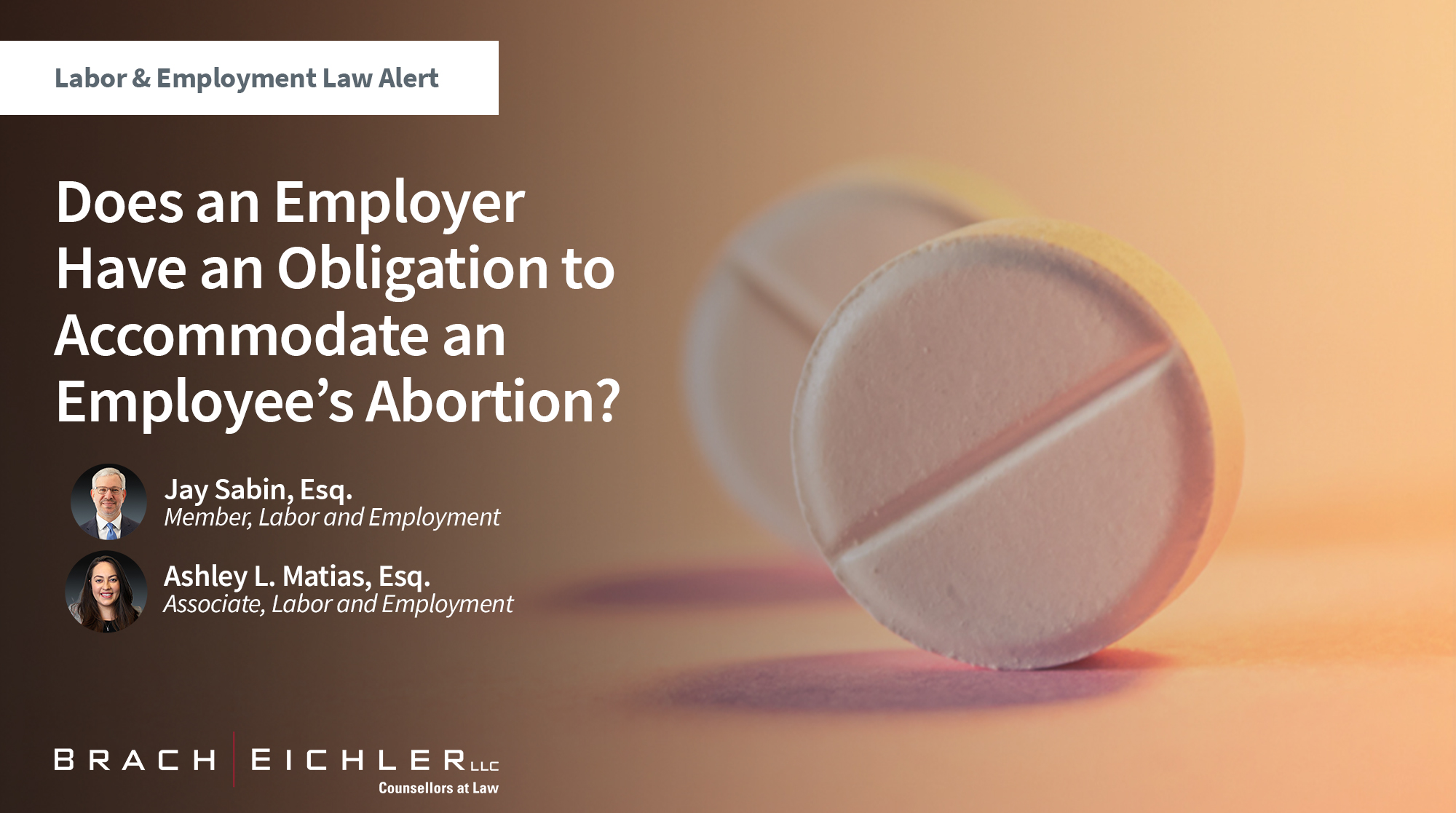Does an Employer Have an Obligation to Accommodate an Employee’s Abortion?

BACK TO INSIGHTS Alerts
August 6, 2024
This alert focuses on the controversial issue of whether an employer must accommodate an employee seeking and/or having an abortion.
Two years ago a new federal law went into effect requiring employers with at least 15 employees to provide qualified employees and applicants with reasonable accommodations for their known limitations related to, affected by, or arising out of pregnancy, childbirth or related medical conditions, unless doing so would cause an undue hardship on the operation of the employer’s business. New Jersey employers were already required by the state’s Law Against Discrimination, to reasonably accommodate a female employee “affected by pregnancy,” but this new federal law, the Pregnant Workers Fairness Act (“PWFA”), broadened those duties.
Recently, the Equal Employment Opportunity Commission (“EEOC”) adopted a regulation that the PWFA requires covered employers to provide elective abortion-related accommodations to pregnant employees and applicants, such as time off to undergo an abortion and/or leave to recover from an abortion. The EEOC reported that it had received approximately 54,000 comments against such a regulation.
The EEOC regulation went into effect June 18, 2024, and was immediately challenged by a number of states and religious organizations. The court results have been mixed. In one lawsuit, the court declined to enjoin the regulation because it deferred to the EEOC’s expertise as it relates to the PWFA. In another lawsuit, a different court preliminarily enjoined the regulation – just with respect to the parties who sued – on the grounds that the EEOC had exceeded its statutory authority. These conflicting decisions have resulted in uncertainty for employers with pregnant workers seeking abortion-related accommodations.
This uncertainty was compounded by the U.S. Supreme Court’s June 28, 2024 decision in Loper Bright Enterprises v. Raimondo, which essentially held that courts should be less deferential to the rules adopted by regulatory agencies. Without such deference, courts must now exercise their independent judgment, which will likely result in even more conflicting rulings.
Although Loper lessens the authority of federal agencies (such as the DOL, EEOC, NLRB, and OSHA) to shape employment law, employers are still advised to follow their regulations, including the EEOC’s pregnancy-related accommodation regulations. Employers must also continue to comply with state-level laws and regulations, though in New Jersey there is no published regulatory guidance or caselaw whether an employer must reasonably accommodate an employee’s abortion-related conditions.
In conclusion, an employer confronted with an employee request for an accommodation due to an abortion-related condition should seek the advice of employment counsel.
For more information on an employer’s obligation to provide pregnancy-related accommodations, please contact:
Jay Sabin, Esq., Member, Labor and Employment Practice, at jsabin@bracheichler.com or 917-596-8987 or
Ashley Matias, Esq., Associate, Labor and Employment Practice, at amatias@bracheichler.com or 973-364-8330.
*This is intended to provide general information, not legal advice. Please contact the authors if you need specific advice.














